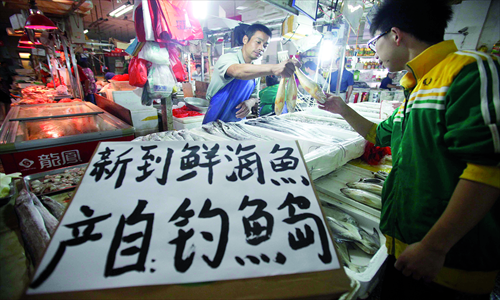Noda playing with fire over Diaoyu

Yoshihiko Noda has reinforced his position amid rocky relations between China and Japan after winning the election of the ruling Democratic Party of Japan on Friday.
Noda is mistaken if he believes pushing for the "nationalization" of the Diaoyu Islands and escalating tensions assure him political gains. It may also suggest that Japan has taken the wrong track.
If political maneuvering - garnering votes through orchestrating diplomatic crises and displays of muscle-flexing - prevails or becomes a common aspiration among politicians in a certain country, the country's politics must have gone wrong. And this seems to be the case for Japan.
Japan describes China, a country that has been subject to its aggression, never engaged in any warfare in the past decades and does not possess any overseas military base, as a threat. Japan has taken increasingly hostile views toward China. It adopts a proactive and aggressive posture when dealing with China and has initiated all provocations. Japan is pushing bilateral ties to the brink of strategic confrontation.
The current tensions are focused on the Diaoyu Islands, a thorny issue that could cause bigger damage with less room for maneuver. Noda is undoubtedly behind such escalation of frictions.
His reelection as the DPJ party chief could mean a longer term for him as prime minister. If a tendency for confrontational ideology and policies takes root during his tenure, Japan will find itself leaning closer to another strategic track, away from the cause enshrined in its Peace Constitution and rational diplomacy.
The Noda administration has showed unprecedented rudeness and blind stubbornness over the Diaoyu Islands spat. It recklessly touches upon the sensitivity of bilateral ties, ignoring the possible strong reaction from China and the new balance of power. If it is true that Noda was surprised by China's reaction, he must take the issue seriously from now on.
He must consider China's overwhelming resolution in defending its sovereignty over the Diaoyu Islands and the strategic emphasis on the issue.
Noda also needs to realize that China is no longer a weak opponent, regardless of the role of the US in the matter. Strategic confrontation is not a choice for Japan.
Churning out votes by masterminding diplomatic tensions has been an eye-opener for many Chinese. It is a luxury to expect these politicians to act in line with their consciences. But we hope that Japanese and Western politicians can honor a bottom line. If they dare to risk anything for personal political gains, China will give them a taste of bitterness.